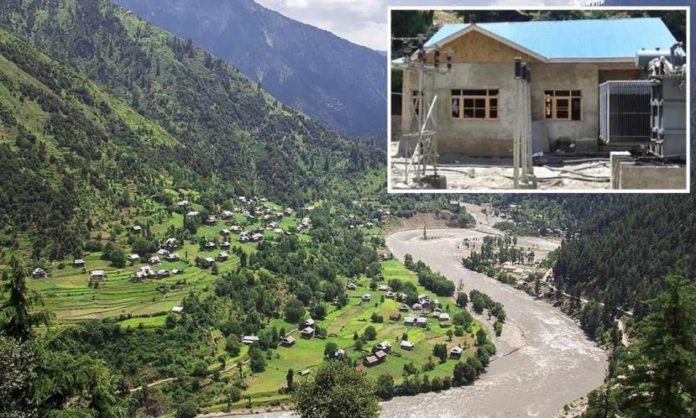SRINAGAR: Negotiating months of heavy snowing and the COVID-19 lockdown, the Kupwara district administration connected three villages located along the Line of Control in Jammu and Kashmir’s Keran area to the national electricity grid, ending a wait since Independence for power supply.
The job was not easy, officials said, recalling the acute shortage of manpower for the work after restrictions were imposed following the abrogation of Article 370 and the imposition of lockdown due to the COVID-19 pandemic
It is an arduous five hours journey to Keran from here on a fair-weather road that meanders through apple and walnut orchards of the Kashmir Valley and the Pherkian Pass at 10,000 feet in the Shamasbari Ranges.
Keran remains cut-off for nearly six months due to heavy snow which can reach heights of nine to 12 feet.
For three hours of electricity, the Keran area, with a population of 14,000 in four panchayats, was till recently dependent on three old diesel generator (DG) sets, for which fuel was transported from the district headquarters.
“Installed over a decade back, the three DG sets were prone to frequent breakdowns further disrupting the meagre power supply, more so in winters when conducting repairs are next to impossible,” Deputy Commissioner, Kupwara, Anshul Garg, told PTI.
In 2012, the area’s residents were hopeful that a solution to their power problems was found. The plan was to extend power lines to Keran and establish a grid station at a cost of Rs 6.5 crore.
But hopes started to wither as no substantial progress was made on the project for nearly seven years, apart from the installation of some solar lighting systems that had limited efficiency even during the summers, some villagers in Keran said.
Not being directly connected to the national power grid threw Keran into extreme backwardness with lack of industries and limited access to medical facilities and television.
“All essential commodities, especially food items and essential drugs are stored in advance for an year in the area to cater to the winter requirements,” Garg said as the area remains cut-off.
The power line project gathered steam after Kupwara was selected as an ”Aspirational’ district by the NITI Aayog in 2018. It was among 112 districts of the country that were chosen for quick and effective transformation.
The task of ensuring last mile coverage in the power sector was put on mission mode from April 2019 under the close supervision of the deputy commissioner.
The Kupwara district administration swung into action deploying multi-disciplinary teams to ensure corridor clearance for the entire stretch of the electricity line, that passes through several villages, steep slopes and dense forests.
The administration decided on a target-based approach. This comprised fortnightly review of work, resolving bottlenecks and regular field inspection by senior officers.
These were besides liaising and taking feedback from Panchayati Raj Institutions especially Mohd Syed Joo, Chairman Block Development Council Keran to avoid further delays.
The job was not easy as the administration was faced with acute manpower shortage after the abrogation of Article 370 followed by seven months of snow in winters and the coronavirus pandemic, officials said.
Sticking to the timeline of July 31, the administration ensured inauguration of the Receiving Sub-station on July 18.
The line was successfully charged providing grid electricity to people in three villages for the first time. The administration is working to cover the remaining three villages soon.
“A small project for the district has triggered revolutionary changes in the lives of the common masses starting from switching on a television set as and when they want, to better healthcare, water supply, lift irrigation systems and impacting almost every walk of life now dependent on power supply. The people living on the zero line are very happy,” Garg said.


